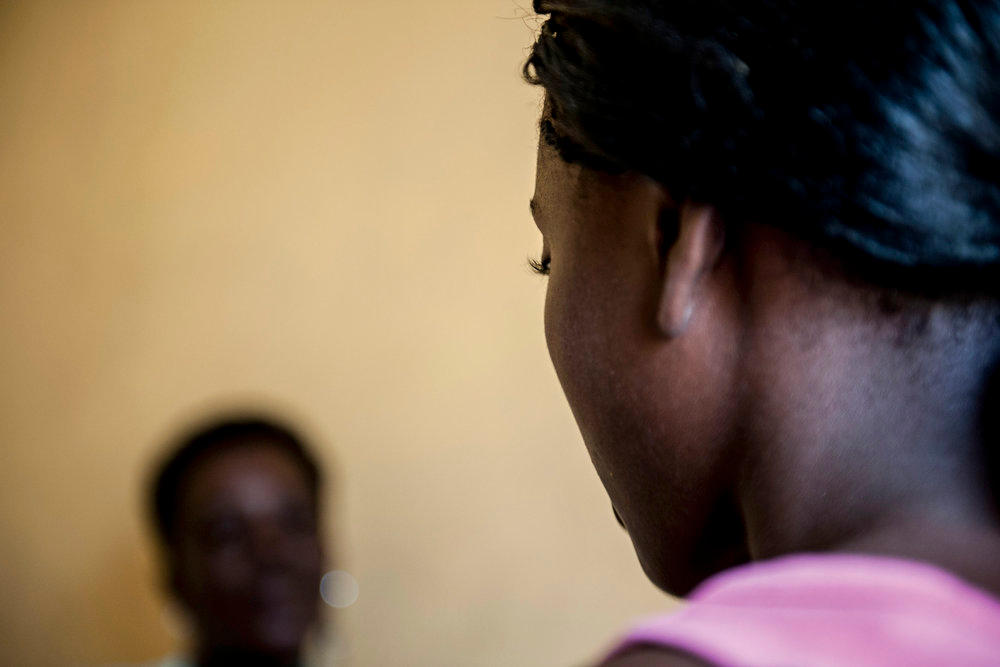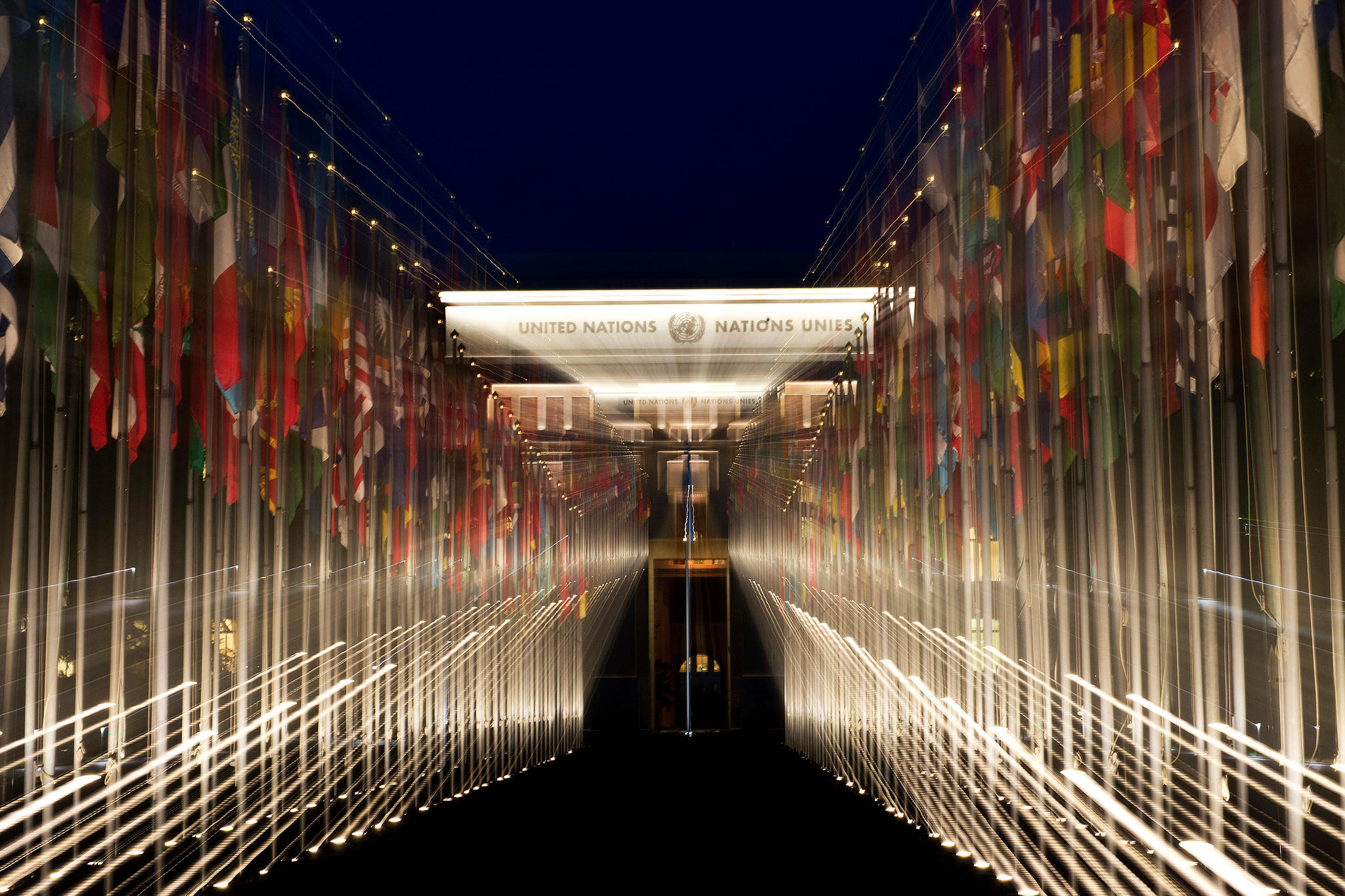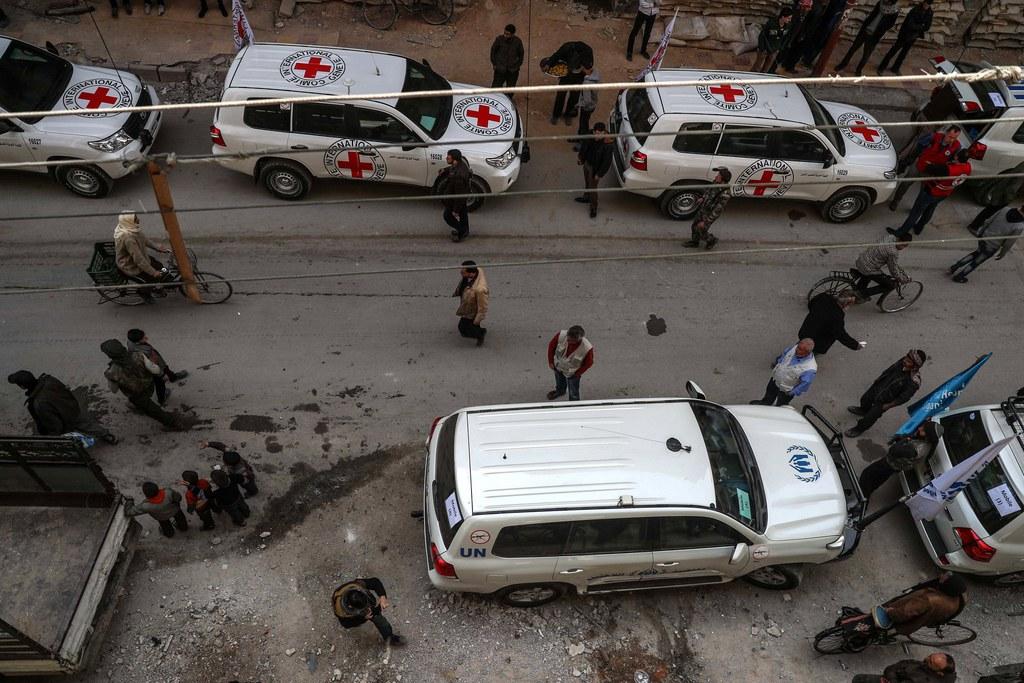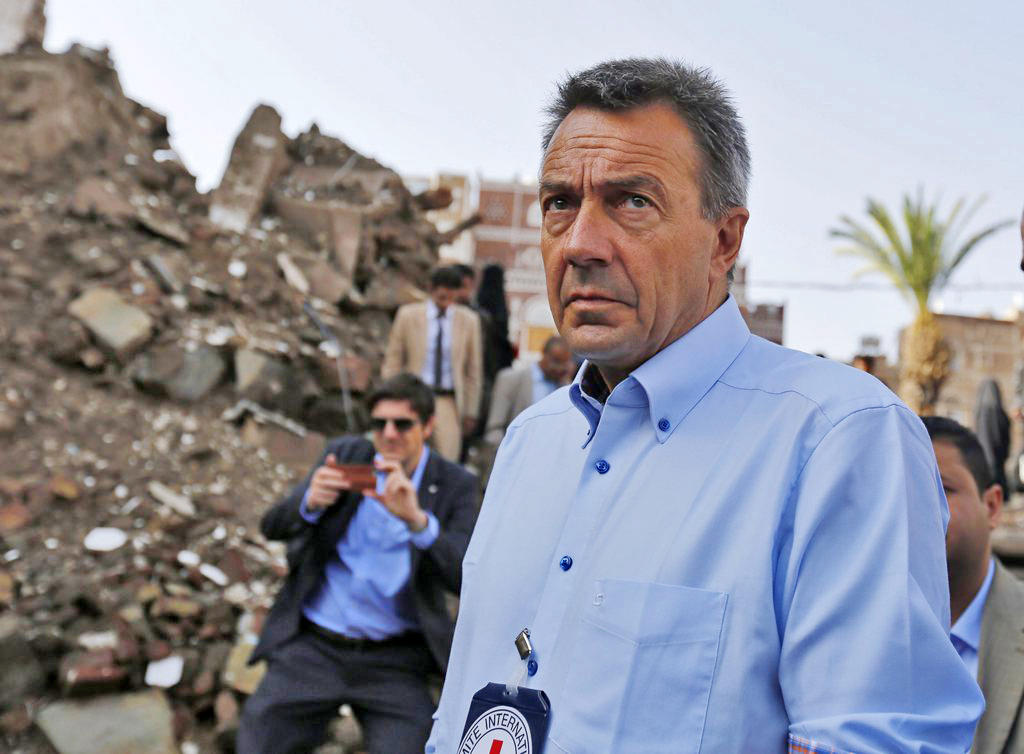Rape in conflict zones a multi-faceted and underreported crime

Wartime sexual violence is a grave and growing problem. Yet the term "rape as a weapon of war" does not always capture the reality of this crime in conflict zones, says Dara Kay Cohen, an expert on the subject at Harvard University.
Instances of rape in conflict areas are on the rise. This was the worrying conclusion of a recent conference hosted by TRIAL internationalExternal link, a Swiss NGO, in Geneva. Wartime rape is a prominent subject in Switzerland’s foreign policy, as the country’s ambassador to the UN, Valentin Zellweger, noted in his keynote speech. He reaffirmed the government’s commitments to fight this problem through mediation, legal and institutional support, and efforts to strengthen international criminal law.
Dara Kay Cohen has done fieldwork in Sierra Leone, Timor-Leste and El Salvador to uncover the extent of rape in wartime. She discusses her findings, published in the book Rape During Civil War,External link and the ways in which countries like Switzerland can help to counter the problem.
swissinfo.ch: Switzerland is deeply involved in the fight against wartime sexual violence. Are there additional measures we could take?
Dara Cohen: To begin with, more fundamental research is needed and should be funded to address the root causes of this phenomenon, especially basic social science research on armed groups. A lot of what we know about wartime rape comes from victims and witnesses. Not many scholars have turned to armed groups to understand how rape was used in their particular setting. Without a clear understanding of the conditions under which wartime rape and other forms of sexual violence are likely to happen, it is hard to design good policy interventions.
swissinfo.ch: Are we focusing on the right areas?
D.C.: Both the research and the policy community often overlook what victims and survivors really want. Judging from the studies that I have read, justice and accountability do not rank among the most pressing needs, whereas psychosocial services and access to medical resources are in high demand. However, meta-level goals like accountability are often the most interesting for Western funders. This misalignment stems from a lack of research and some basic assumptions that are not well-tested.
That is not to say that efforts such as raising wartime rape to the level of an internationally recognized war crime are not extremely important. It shows that the international community rejects the old notion that rape is inevitable, uncontrollable and has always been a “private crime” in war.
Prioritizing international trials is important to shape global norms, to globally cement that rape is neither acceptable nor tolerable. But international trials should not be touted as the main policy solution to the problem of wartime rape. I think they are unlikely to deter future incidents of mass rape.

More
Combating the spread of wartime rape
swissinfo.ch: When talking about shaping norms, the expression “rape as a weapon of war” comes up often. Is this term accurate? Is it helpful?
D.C: On the one hand, the widespread use of this term is an incredible achievement of the researchers and advocates who coined it. They managed to change the way policy makers talk about wartime rape today – as a specific crime and a tactic, not just a side effect of war.
On the other hand, the dominant narrative has now entirely shifted. Today, large-scale rape in conflict tends to always be designated a weapon of war. I think that is a mistake. It obscures a lot of the complexity and implies that rape is directed from the top down by some nefarious commander who follows a clear strategy.
However, we have very little evidence that this is true. We are conflating the terrible effects and consequences of rape with the motivations to commit this form of violence. Yes, when rape is committed in conflict it usually helps achieve some political goals along with it – such as clearing a contested piece of territory – but that does not mean that was the perpetrators’ goal from the very beginning.
This matters from a policy perspective. Calling rape a “weapon of war” suggests that we primarily need to hold commanders accountable to do away with it. Some colleagues and I have been critical of that. Rape is often not ordered from the top down but is generated by the rank and file in the immediate conflict environment. Finding evidence of orders and clear chains of command is very unlikely. Much rather than being commanded, it is likely that in most cases, rape is being tolerated. This suggests a fundamentally different set of principles to decide who to hold accountable, how and why.
swissinfo: Does that mean we should focus more on conducive behaviors rather than conducive factors?
D.C: There are of course conducive environments as well. State breakdown is clearly one of the best breeding grounds for those crimes. Also, when armed groups are funded by contraband and have access to material resources, they are less accountable to civilian populations. Increased instances of rape may be a consequence of that lack of accountability.
In my book, I particularly deal with one empirically documented behavior: rape takes a fundamentally different form in war than in peacetime. Multiple perpetrator rape—also called “gang rape”- is much more common in war, a finding that holds up cross-culturally. Given this change in form, what can this tell us about the purpose of rape from the view of an armed group? I argue that gang rape creates cohesion and bonds in the chaos of war among members of armed groups. This is especially true for groups that have recruited their fighters by force. Those groups are very likely to have low levels of cohesion, and gang rape can serve as one way for these groups to mitigate problems of low cohesion. These crimes can also serve as initiation rituals for new members.
swissinfo: At the conference, many NGOs lamented that there are still no globally comprehensive studies and that the number of unreported cases is enormous. Do we have any estimate of the magnitude of the problem?
D.C: The obstacles are indeed manifold. First, we don’t have a consensus definition of what “wartime sexual violence” is. Even when limiting it to just rape, this still proves to be difficult to measure: do we measure the number of victims, the number of acts, or both? I interviewed survivors who had been raped once by one person, raped by ten perpetrators one time, or who suffered through individual and gang rape multiple times.
Secondly, surveys have intrinsic problems with reporting bias. Typically, people are surveyed about the kinds of sexual violence they have experienced in a particular conflict. These data are then extrapolated back to the population size at large. But since rape is a very stigmatized form of violence, respondents are unlikely to feel comfortable reporting rape in a survey.
One cutting-edge social science method that moves beyond simple yes/no surveys is the “list-experiment”. This methodology allows respondents to report incidents of sexual violence indirectly in a questionnaire. By way of elimination and probability, the researcher can estimate the number of incidents of rape that were reported by the respondents. A recent studyExternal link using this method in Sri Lanka shows a surprisingly high reporting rate of sexual violence against men committed during the civil war (1983-2009).
Unfortunately, these tools are still largely confined to the research community and haven’t really entered the policy world yet.
swissinfo.ch: When looking at wartime rape in current events, Libya comes to mind, where sexual violence against refugees in detention centers is widespread. How has migration affected the dynamic of rape in war-torn countries?
D.C: Although I haven’t studied migration myself, the fact that these people are in detention seems crucial. Research by my colleagues and me shows that in reports of sexual violence by state representatives, a large majority (perhaps up to 75%) of these incidents happen against victims in detention. Obviously, the power differentials and opportunities to be violent and exploit vulnerable people are especially heightened. When detainees are questioned and tortured, sexual violence is not infrequently a part of that. Many detainees are men, and research shows that they experienced forms of sexual violence that, if they were to be used against women, would be called rape.
To come back to your original question about policy options: the most understudied victim group of wartime sexual violence is men. Conventional wisdom implies that victims of rape are women. Needless to say, the many feminist activists that brought the topic to light in the first place as a problem of violence against women deserve tremendous recognition.
However, rape is still too narrowly regarded as a problem of women. As low as reporting rates by female victims are, they are dramatically lower for men. In three different former civil war countries (Sierra Leone, El Salvador, Timor-Leste), I tried to find male victims and survivors of rape for interviews. I could not find a single person willing to talk to me.

In compliance with the JTI standards
More: SWI swissinfo.ch certified by the Journalism Trust Initiative












You can find an overview of ongoing debates with our journalists here . Please join us!
If you want to start a conversation about a topic raised in this article or want to report factual errors, email us at english@swissinfo.ch.